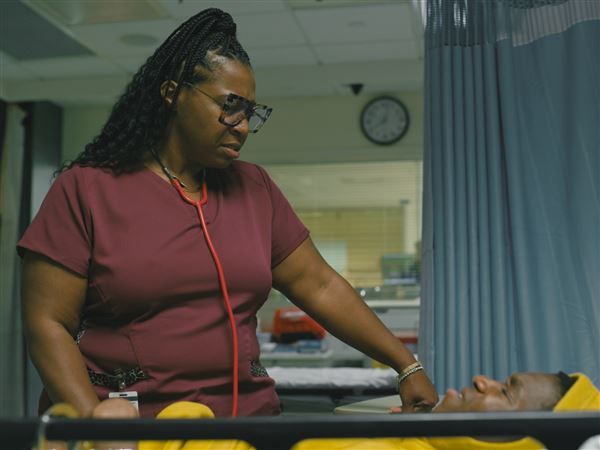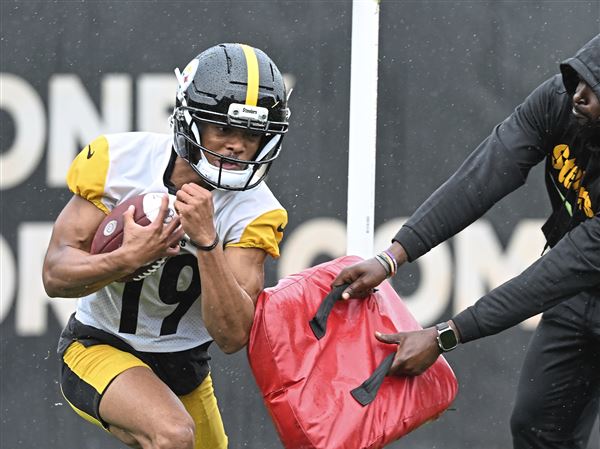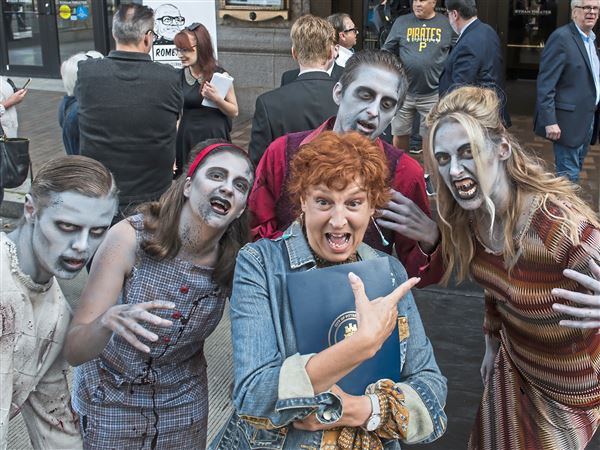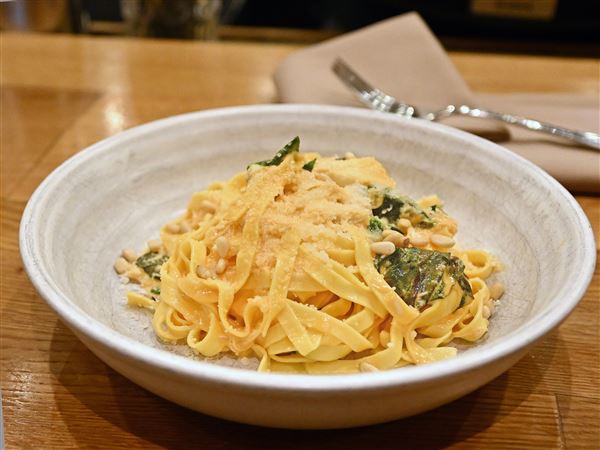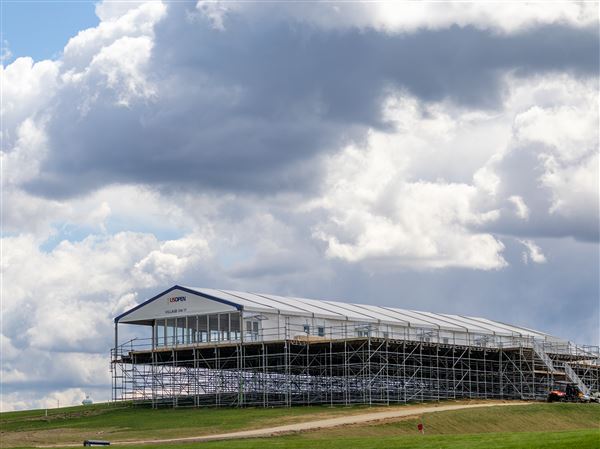Twenty-ounce plastic bottles may seem small, but they could make a big difference in one day restoring the Braddock Carnegie Library Music Hall to its former glory.
That's because John Hempel, 57, of Pittsburgh, is donating to the library the 5 cents per bottle he receives for recycling them.
"I am a habitual recycler," he said, "but it was recycling something and using it directly, rather than reprocessing it, and earning some money for my favorite nonprofit to boot," Mr. Hempel said.
Mr. Hempel's passion in this endeavor comes naturally -- besides being an avid recycler, he's chairman of the library board's restoration committee. Supporting the environment and one of the region's oldest Carnegie libraries are his focus.
"The amount of money that I am going to raise for the library is, relatively speaking, a drop in the bucket of what we need to restore the music hall, but at least it's something," Mr. Hempel said.
Mr. Hempel is leading Pittsburgh's Bottle Brigade chapter, which works in turn with New Jersey-based TerraCycle, a company directly in need of used, 20-ounce bottles to package a fertilizing product.
For every bottle Mr. Hempel and other participants collect, TerraCycle donates five cents to the nonprofit of their choice.
In return for the 6,000 bottles Mr. Hempel, a professor of biological sciences at the University of Pittsburgh, has already sent back to TerraCycle, more than $350 has been raised to help fund the restoration of the music hall.
Mr. Hempel said the slow and steady flow of cash from TerraCycle is a good start to getting back to the library's roots.
"The library was a centerpiece of Braddock, and it's been there since 1889, and all the people who grew up there in the '20s, '30s and '40s will tell you what an impact it had on their life," Mr. Hempel said. "Bringing the library back to the status that it had back then is an important thing for the community."
Vicky Vargo, executive director of the Braddock Carnegie Library, said that the music hall is used today for various events, but the 500 seats and the flooring need to be replaced. According to Mr. Hempel, water damage has also resulted from a leaking roof.
While the library is seeking grants for the work, the recycling fund-raiser is jump-starting the process.
"It's amazing. John will see a bottle on the road and pick it up and now I pick them up when I'm walking my dog," Ms. Vargo said. "It's helping the environment and the library at the same time."
Ms. Vargo said that she hopes to see the program grow into a larger base of volunteers.
"It's on a small scale right now, but if we can buy a couple of music hall seats, it could speed up the process," Ms. Vargo said. "We would like to do it on a large scale but it's just a matter of finding a volunteer to coordinate the recycling project."
Laurel Roberts, 49, of Pittsburgh, is also a professor of biological sciences at Pitt and said that Mr. Hempel's enthusiasm is contagious. She is now a regular contributor to the Bottle Brigade program.
"In Pittsburgh, we value our institutions like libraries, and this is a painless way to keep them as available to everyone as possible, and knowing that Braddock is a community that has had a lot of trouble, it's a feel-good thing," Ms. Roberts said. "You're saving the planet and helping a local community."
Carl Lagenaur, 56, of Edgewood, is also Mr. Hempel's colleague and teaches first year medical students at Pitt in the neurobiology department. Mr. Hempel recruited Mr. Lagenaur to join the brigade, and he has been spreading the word across campus ever since, hanging signs on vending machines to notify students of the program as well.
"It takes very little effort and produces money for a great Pittsburgh institution that needs to be helped out in every way that it can," Mr. Lagenaur said. "Improving the basic structure of the library will make it the community focus again."
Ms. Roberts, who grew up in the Hill District, said that she sees the value of the Braddock library simply by looking back on the impact of libraries on her own childhood. She said that it is important to keep such institutions ready and available for patrons with hungry minds walking through their doors.
"August Wilson used the library when schools didn't give him what he needed, and without these libraries, he might not have written his plays," Ms. Roberts said. "The next August Wilson might be out there."
Bottle Brigade bins are located in Clapp Hall at the University of Pittsburgh. Those who desire to participate on their own can sign up at www.terracycle.net.
First Published: August 30, 2007, 10:15 a.m.

